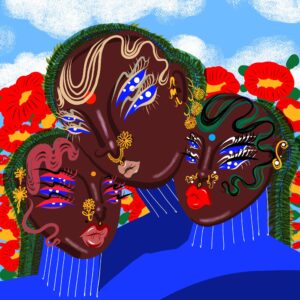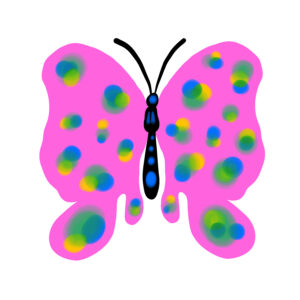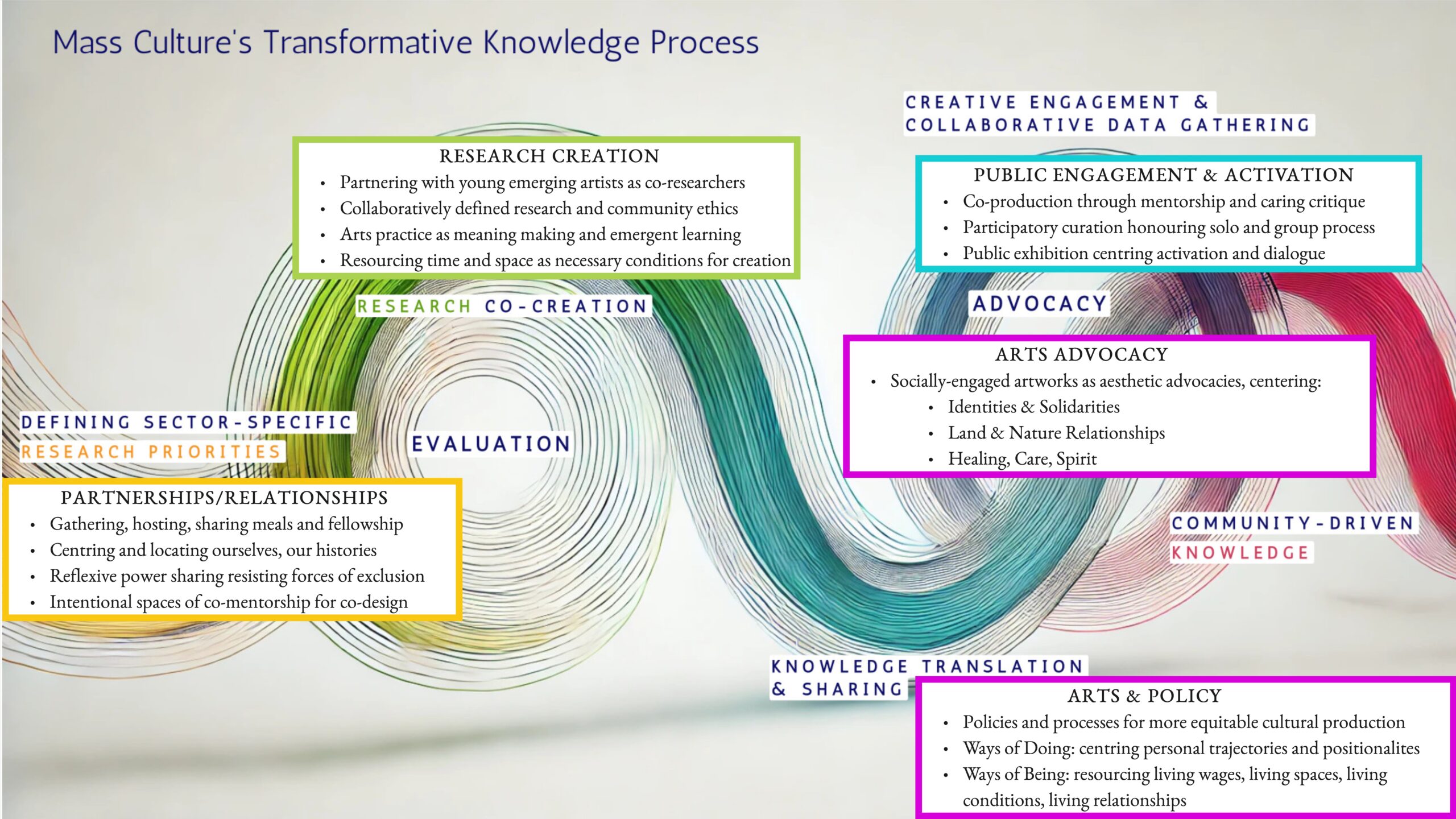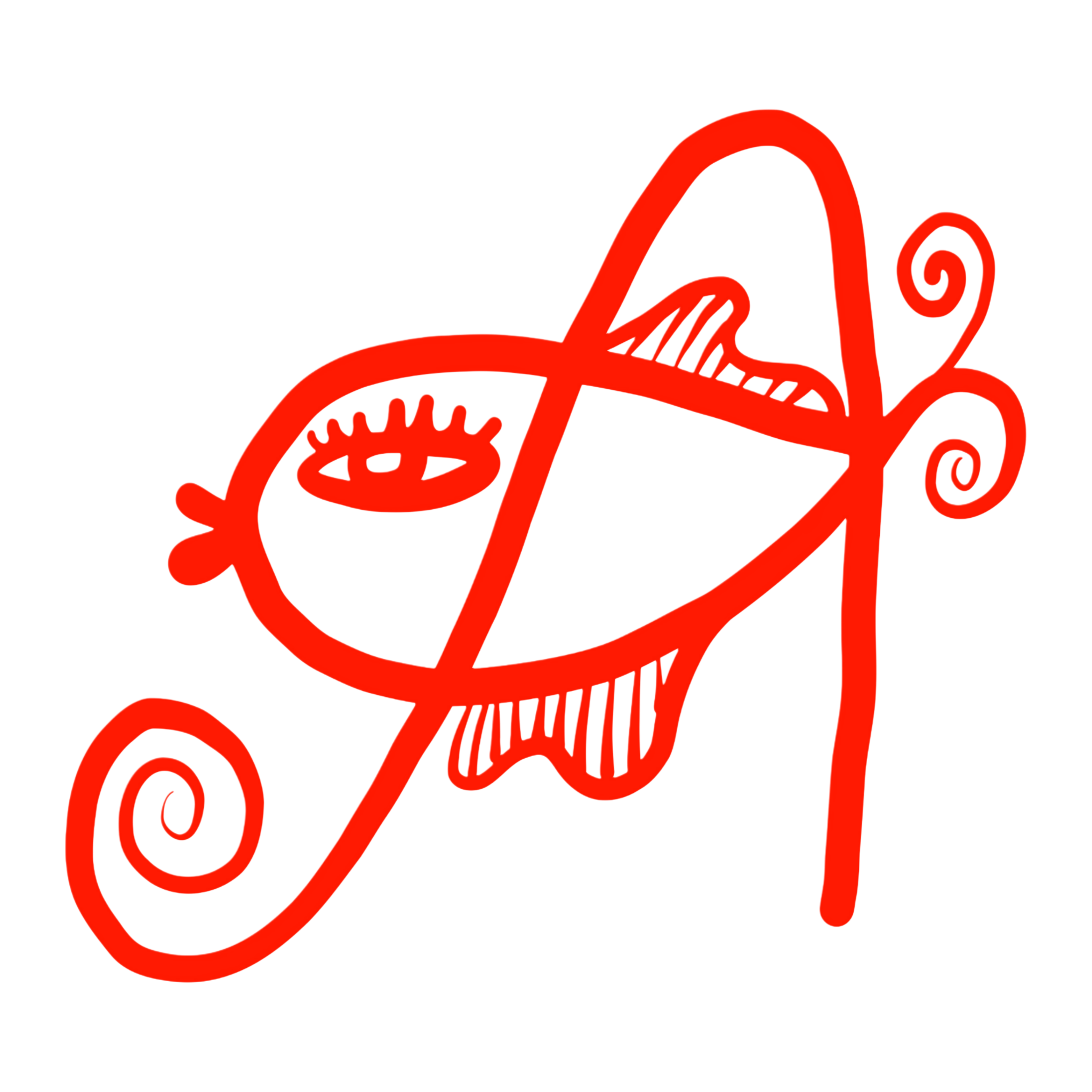
ReAct ReCreate ReVision
A Field Guide to Practice Research in Socially-Engaged Arts
This guide draws from the experiences and findings of a research creation partnership with racialized and gender diverse emerging artists. Over an 18-month period, 18 diverse artists took part in creative research to develop artworks and activations responding to the question:
What Change Do You Want To Make With Your Art?
The resulting creative explorations and processes culminated in a dynamic group exhibit Trajectories of Now: An Anthology. Through visual, audio, and tactile works, Trajectories documented critical narratives of relationships to identities; both personal and collective.
We offer this collection of key stories and insights from our project trajectories, artworks and advocacies. We emphasize that this is a very localized and subjective exploration. We offer this guide in no way as fulsome, definitive or prescriptive, but rather as exploratory and reflective on pathways and ongoing openings.
PREFACE
We want to first and foremost open this guide with recognition that racialized artists and arts workers have always been working this way: in community and for community, driven by deep understanding of needs, desires, and intentions for building equitable and sustainable arts and cultural practices. In a multitude of ways that lead ecosystems for collective liberation.
RRR connects emerging equity-insightful artists with established socially-engaged artists and researchers to extend into and from the broader ongoing arc of arts for social change.
We invite you into this work through different, layered ways.
Follow the art through our short film and multimedia gallery
Uncover process reflections for each phase of our journey
Engage our recommendations for more equitable cultural production
Aesthetics Policies - Findings & Recommendations
Personal Trajectory Centred Approach

Prioritize working flexibly and reflexively with where artists are. Co-creating spaces and processes for self-determination, accessibility, and belonging.
Seeing dynamics of personal place, personal journeys, and even creative blocks, as treasured spaces for creating and insight.
Centering the power and capacity that racialized artists hold for naming and resisting unjust systems and visioning new futures: Building partnerships to scaffold that capacity.
Equity and Positionalities

Naming and addressing tensions of colonial/imperial structures that can affect deep engagement within institutionalized processes and spaces.
Resisting colonial practice through reflexive and dialectical attention to positionalities involved in particular with how white people partner with racialized people and communities.
Partnerships committed to holding and working through tensions that exist as different worlds come together to support emerging creation and engagements.
Socially Engaged Participatory Curatorial Practice

Participatory curation iterating from personal art-making to community-engaged practice. A progression named and experienced as collective care toward radical belonging.
Opening practice spaces for artists to build movement mindedness and skillful action.
Building practice and rigour for a third space at the intersections between community and academia for brokering access to academic power systems, and pushing/interrupting academic/institutional structures.
Time and Money Investment

Centring an artist driven design that prioritizes relationship building, exploration, and fulsome production timeline. Not focusing narrowly on products/deliverables.
Investing in time to make but also in time to gather, to explore, to incubate, to dream.
Investing in dynamic cross-cutting teams with experience and access across different practice spaces.
Infrastructure and Livelihoods

Exploring alternative and more equitable models and processes for resourcing living wages, living spaces, living conditions, living relationships.
Building partnerships, capacities and mutually reinforcing infrastructures.
Enacting conditions for creation for realizing more equitable cultural production.

1. More investment in community-university partnerships, prioritizing mutually reinforcing collaborations that bring institutions and community together. Develop robust alternative accreditation models that recognize and build these capacities.
-
Community spaces access resources for making and knowledge mobilization
-
Institutions access community leadership to increase equity capacity

2. Resource intermediaries committed to holding the tensions that exist as very different worlds come together to support creation with young people.
-
Successful projects involve academia, community
-
and a group/curatorial partner that sits in between and facilitates collaboration

3. More investment in research creation for emerging queer and racialized emerging artists.
-
Multiple points of funding – grants, financial activism, etc.
-
Multiple spaces for practice – maker spaces, incubators, collabs, etc.

4. Build practical tools to increase advocacy and access – making the path from art to policy clear.
-
Mobilize making transparent aesthetics of decolonial design
-
needed now for meaningful engagement and pathways forward
Explore how our work maps to Mass Culture's Transformative Knowledge process







